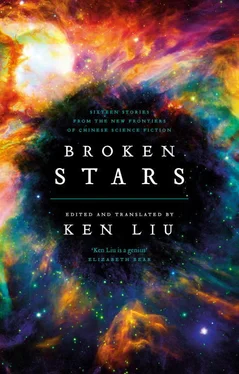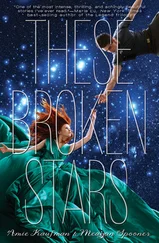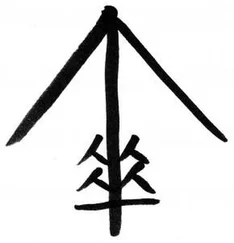Since the Premier and Guo Moruo had both given the green light, the novels I had written were reissued in new editions. Readers had not had access to such books in a long time, and the response was overwhelming. Magazines began to approach me and commission new stories, and eventually I published a few collections. Fans began to call me a “famous writer.”
I knew very well that these new stories were nowhere near as good as my old ones. I no longer dared to write about politically sensitive subjects, and these new offerings were affected works that praised the regime without articulating anything new. But who said the world was fair? I knew I was unlikely to accomplish anything great during what remained of my career. I decided I would use the little bit of influence I had to try to help talented young people, and to that end, I began to actively participate in social functions.
The good times didn’t last. Soon, the country hit another rough patch. China conducted another nuclear test, and once again, both the Soviet Union and the United States imposed sanctions. Food shortages became rampant, and everyone’s rations were reduced. The streets were full of hungry people, and it was said that even Chairman Mao had stopped eating meat.
But even so, those of us in the big cities were lucky. Heizi told me that people were starving to death in the countryside. But since no news of this kind could be published, no one knew the truth. We didn’t dare to speculate or say much, either. Although the Cultural Revolution was over, the political climate was still very severe. Rumor had it that when Marshal Peng Dehuai dared to offer some opinions critical of official policy at the Lushan Conference, he was severely punished.
The next year, Shen Qian died. No, not from starvation. She had liver cancer. As the wife of a high-status intellectual, she could have received treatment that would have prolonged her life, but she refused it.
“We stuck with each other… all these years…. Life has been so exhausting, hasn’t it? We are like those two fish… in that Daoist parable…. Rather than struggling to keep each other alive on land, wouldn’t it have been better… if we had never known each other at all, but lived free in the rivers and lakes? Don’t be sad…. I’m not sad to go….”
I held her hand, and tears made it impossible to speak. I remembered something from our youth: back then, everyone in middle school said we were a pair because we had classroom cleanup duty, but I didn’t like her, and she didn’t like me. When we worked together, it was very awkward because we refused to talk to each other. One time, I was standing on a chair to wash the windows and started to fall. She rushed over to help and I ended up falling on her. As we both limped to see the school nurse, the absurdity of the situation struck us, and we laughed as we blamed each other…. That faded memory now felt like a preview of our time together.
“I really want to… hear that old song again.” Shen Qian’s voice was fading. “I haven’t heard it in such a long time. Can you… sing for me?”
I knew the song she was talking about: “Rain, Hail, or Shine,” by the Taiwanese singer Wakin Chau. We used to sing it all the time when we were in high school. I had forgotten most of the lyrics, and the best I could do was to recall a few fragments about love, about the pain and pleasure that dreams brought us, about regrets. I sang, my voice trembling, tears flowing down my face, and my cracked voice not sounding musical at all.
But Shen Qian moved her lips along with mine. She could no longer make any noise, but she was lost in the silent music of yesteryear. The rays of the setting sun shone through the window and fell upon her, covering her gaunt face with a golden glow.
We sang together like that for a long, long time.
14.
The years of starvation finally came to an end. The Soviet Union and China repaired their broken bond and trade began to grow. The Soviet Union provided us with a great deal of assistance, and the domestic economy slowly recovered. But I was now almost sixty and felt much older. I resigned from the position of department chair, thinking I’d use what little time was left to write a few books. But I was nominated assistant dean of the university and became a standing committee member for the China Writers Association. In addition, I was picked as a delegate to the National People’s Congress. I was too busy to write.
One day, I received a call from Mao Dun, the Minister of Culture.
“The Premier has asked you to attend a diplomatic function. There’s a group of avant-garde Western writers visiting, and he thinks you know one of them.”
“Who?”
“I don’t know the details. I’ll send a car for you.”
That evening, a car took me to the Beijing Hotel, which had one of the country’s best Western-style restaurants. Many important people were in attendance, including the Premier himself, who gave a welcome address. As I surveyed the foreign visitors, I recognized the writer I was supposed to know right away. I couldn’t believe my eyes.
After a series of boring speeches and a formal dinner, finally the time came to mingle and converse. I walked up to that man and said, in my terrible French, “Bonsoir, Monsieur Sartre.”
He gazed at me curiously through his thick glasses and gave me a friendly smile.
I switched to English and introduced myself. Then I told him how much I admired L’Être et le néant and how I had written papers on it. I had never expected to see him in China.
“Well.” Sartre quirked an eyebrow at me. “I never expected anyone in China to be interested in my work.”
I lowered my voice. “Before the Cultural Revolution, your work was very popular in China. Many people were utterly entranced by your words, though they—myself included—could not claim to truly understand your philosophy. However, I’ve always tried to understand the world through it.”
“I’m honored to hear that. But you shouldn’t think so highly of my words. Your own thoughts about the world are the most precious thing—really, thinking itself is the only thing that is important. I must admit I’m surprised. I would have expected you to be a socialist.”
I smiled bitterly. “Socialism is our life, but this form of life has turned me and many others into existentialists. Perhaps in that way the two are connected.”
“What is your thought on existentialism?”
“To quote you, ‘ L’existence précède l’essence. ’ The world appears out of an essenceless abyss. Other than time, it depends on nothing, and it has no meaning. All meaning comes after the world itself, and it is fundamentally absurd. I agree with this. The existence of the world is… absurd.”
I paused, and then, gaining courage, continued with the puzzle that had plagued me for years. “Look at our world! Where does it come from? Where is it headed? When I was born, the Internet had connected all parts of the globe, and high-speed railways crisscrossed the country. The store shelves were full of anything one might desire, and there were countless novels, films, TV shows…. Everyone dreamed of a more wonderful future. But now? The web and mobile phones have long disappeared, and so has television. We appear to live in a world that is moving backward. Is this not absurd? Perhaps it is because our existence has no essence at all.”
“Sir,” said a smiling Sartre, “I think I understand what is troubling you. But I don’t understand why you think this state is absurd.”
“If the existence of the world has meaning, the world must advance, don’t you think? Otherwise what is the point of generation struggling after generation? The world appears to be a twisted shadow of some reality.”
Читать дальше












